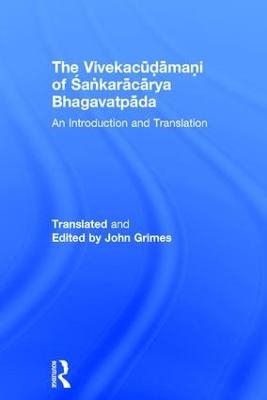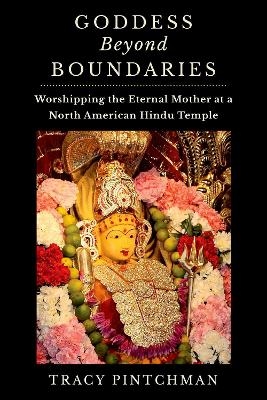
The Vivekacudamani of Sankaracarya Bhagavatpada
An Introduction and Translation
Seiten
2004
Routledge (Verlag)
978-0-7546-3395-2 (ISBN)
Routledge (Verlag)
978-0-7546-3395-2 (ISBN)
This text presents an accessible translation of the "Vivekacudamani" and also includes Upanisadic cross-referencing to most of its 580 verses, extensive notes, a lengthy introduction, list of variant readings, an extensive bibliography and an index to the verses.
Advaita Vedanta is one of the most important and widely studied schools of thought in Hindu religion and the Vivekacudamani is one of the most important texts in the Advaita tradition and the most popular philosophical work ascribed to the great Indian philosopher, Sankara. Sankara (c.650-700) is considered to be a giant among giants and probably the most venerated philosopher in India's long history. The Vivekacudamani is in the form of a dialogue between a preceptor (guru) and a pupil (sisya) expounding the quintessence of Advaita in which the pupil humbly approaches the preceptor and, having served the teacher selflessly, implores to be rescued from worldly existence (samsara). The guru promises to teach the way to liberation (moksa) which culminates in the ecstatic experience of one's own Self. This book presents an accessible translation of the entire text and also includes Upanisadic cross-referencing to most of its 580 verses, extensive notes, a lengthy Introduction, list of variant readings, an extensive bibliography, and an index to the verses. All those interested in Indian religion and philosophy, Hindu studies, or Sanskrit, will find this readable English translation of an Indian philosophical classic invaluable.
Advaita Vedanta is one of the most important and widely studied schools of thought in Hindu religion and the Vivekacudamani is one of the most important texts in the Advaita tradition and the most popular philosophical work ascribed to the great Indian philosopher, Sankara. Sankara (c.650-700) is considered to be a giant among giants and probably the most venerated philosopher in India's long history. The Vivekacudamani is in the form of a dialogue between a preceptor (guru) and a pupil (sisya) expounding the quintessence of Advaita in which the pupil humbly approaches the preceptor and, having served the teacher selflessly, implores to be rescued from worldly existence (samsara). The guru promises to teach the way to liberation (moksa) which culminates in the ecstatic experience of one's own Self. This book presents an accessible translation of the entire text and also includes Upanisadic cross-referencing to most of its 580 verses, extensive notes, a lengthy Introduction, list of variant readings, an extensive bibliography, and an index to the verses. All those interested in Indian religion and philosophy, Hindu studies, or Sanskrit, will find this readable English translation of an Indian philosophical classic invaluable.
John Grimes is a professor at Kodaikanal International School, Kodaikanal, South India.
Contents: Preface; An introduction to the life and thought of sankara: Approaches to the study of Sankara; Determining the dates of Sankara; The life of Sankara; The works of Sankara; The Vivekacudamani; The philosophy of Sankara; What is Advaita Vedanta?; The legacy of Sankara; The crown jewel of discrimination: (translation and notes); Variant readings; Bibliography; Indexes.
| Erscheint lt. Verlag | 14.1.2004 |
|---|---|
| Verlagsort | London |
| Sprache | englisch |
| Maße | 156 x 234 mm |
| Gewicht | 453 g |
| Themenwelt | Geisteswissenschaften ► Religion / Theologie ► Hinduismus |
| ISBN-10 | 0-7546-3395-0 / 0754633950 |
| ISBN-13 | 978-0-7546-3395-2 / 9780754633952 |
| Zustand | Neuware |
| Haben Sie eine Frage zum Produkt? |
Mehr entdecken
aus dem Bereich
aus dem Bereich
Worshipping the Eternal Mother at a North American Hindu Temple
Buch | Hardcover (2024)
Oxford University Press Inc (Verlag)
79,80 €


